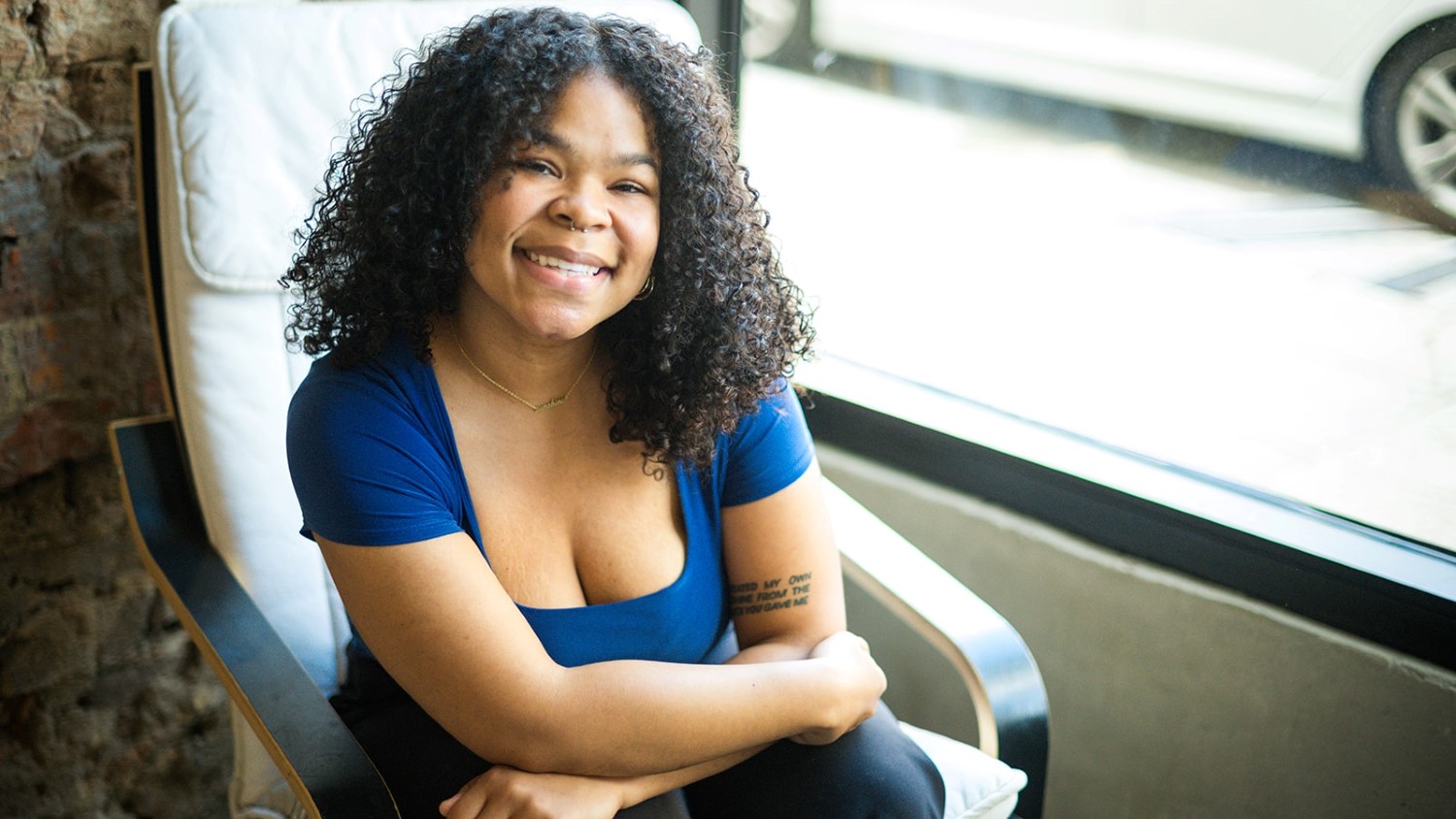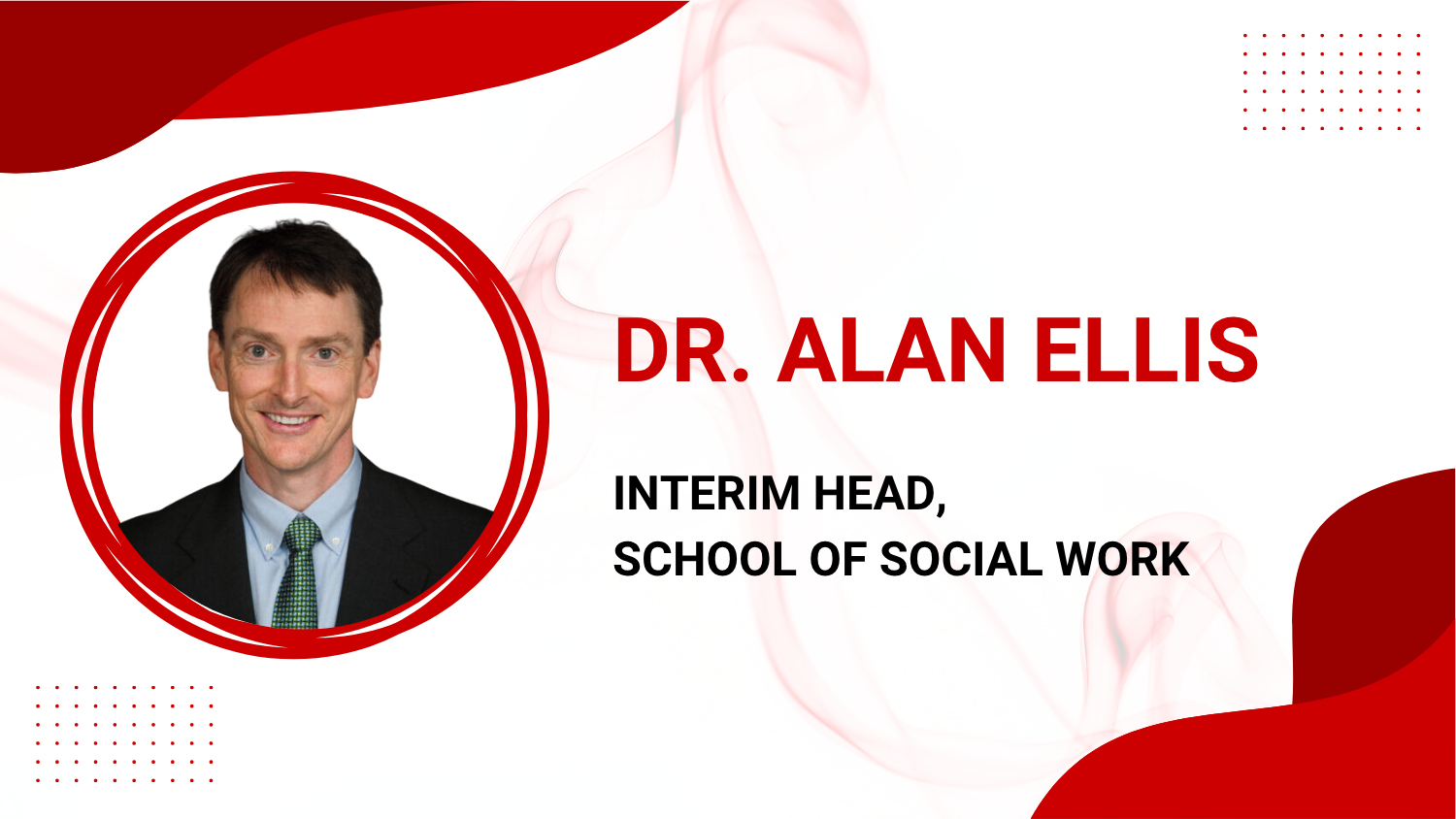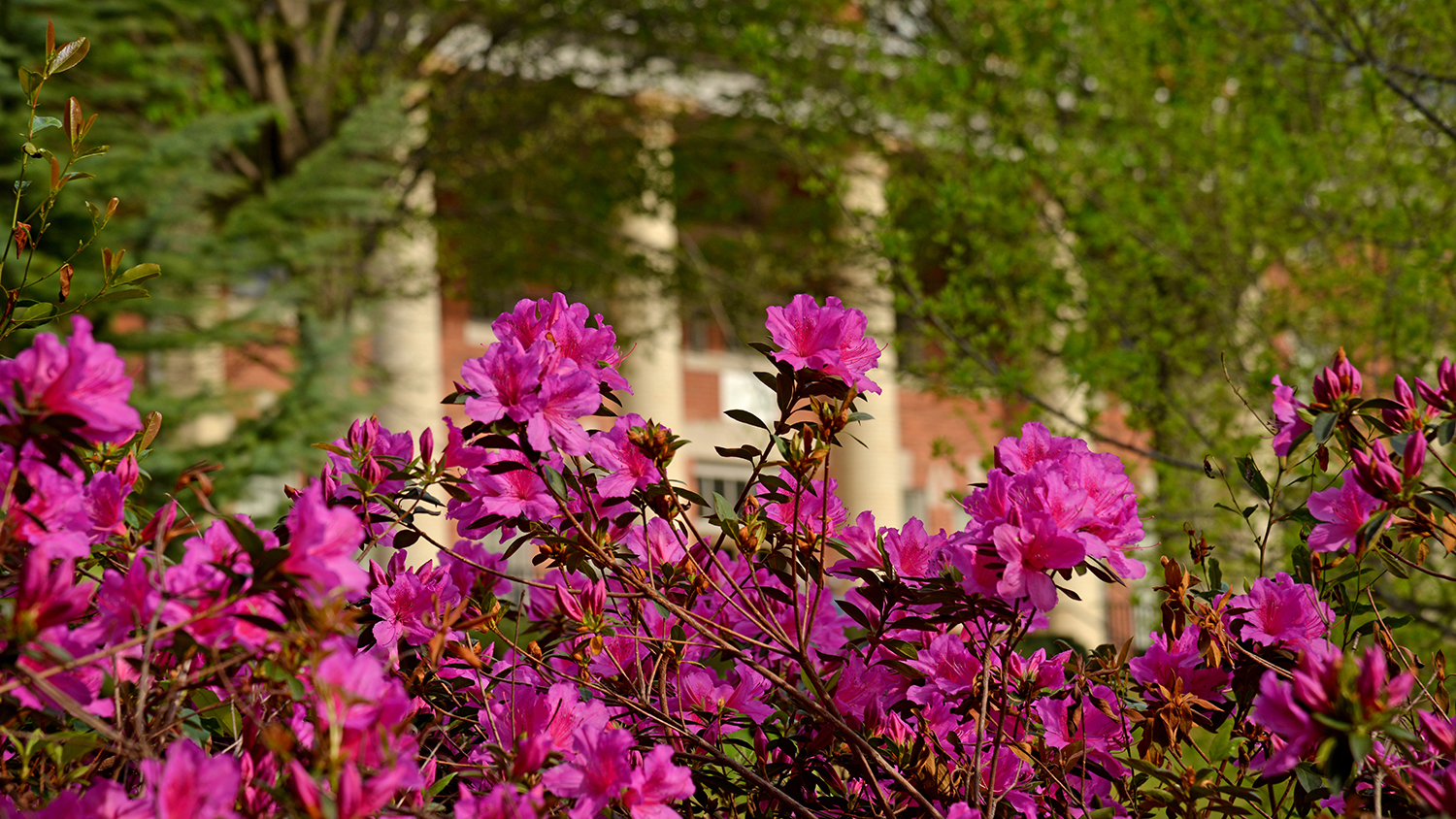First-Generation BSW Graduate Uses Multi-Faceted Lens in Work With Older Adults
Grace Lee, a spring 2017 graduate of the NC State Department of Social Work’s BSW Program was interviewed for our 2017 annual newsletter. Read her interview below to learn more about her study abroad experience in South Korea, life as a first-generation Korean American, and how her heritage affected her field practicum work with older adults.
(Above – Grace Lee at the Spring 2017 graduation ceremony)
Start with a little bit about yourself. Tell the readers who you are, where you are from, etc.
I was born on December 1, 1994 in Charlotte, NC. I am a first-generation Korean American. My parents came to the U.S. from South Korea about 25 years ago. I have one older brother and one younger sister. My younger sister also attends NC State as a Computer Science major. I am someone who loves staying at home watching Asian dramas and playing with my two Chihuahuas, Domo and Tuna.
(Above – Grace Lee [far right] and some of her BSW cohort visiting NASW-NC during a field seminar visit)
What drew you to Social Work?
I was drawn to social work because it gave me the opportunity to talk to people for a living. I enjoy talking to people, but even more so, I love the experience of getting to know a person. I love how social workers are given the chance to engage and develop relationships with people in a way that other professions do not have the opportunity. I also love how social work empowers and inspires both the clients and the social worker.
Did you have a specific area of interest in social work when you entered the BSW program?
I was specifically interested in working in the school system. I have always imagined myself in school setting as either a teacher or a counselor. I also envisioned myself working with teens. I love interacting with them because they remind me of when I felt the most inspired and passionate. I hope to soon to be a part of a support system that aid in their pursuit of their dreams and passions.
Why did you choose NC State?
I chose NC State because:
- I love the color red and I loved our mascot.
- My cousin attended NC State.
- I wanted to live away from family, but still be close.
- I loved the huge campus.
You studied abroad while in the BSW program, can you talk about your international experience in Seoul, South Korea?
The main reason why I decided to study abroad in South Korea was to see some of my family members for the first time. The last time I visited Korea was when I was not even three years old. I went with the purpose of meeting my grandmother for the first time. I had never even seen a photo of her so going to Korea was really the first time I ever saw her. I also was able to meet family members from my mother’s side. Everyone on my dad’s side emigrated here more than 20 years ago to the U.S. I took this study abroad experience to my advantage so that I would see my grandmother and get transfer credits at the same time.
Why did you choose Ewha Womans University?
- I wanted to experience going to an all-women’s university.
- The campus is agreed to be one of the most beautiful campuses in Korea.
- The university is located in the center of Seoul (the capital), which made traveling very convenient. It is also located in one of the biggest shopping districts.
What did you learn from this experience?
I learned the value of social engagement. I met people who were fluent in four different languages, and saw them converse with people in those languages within the span of five minutes. I also met some individuals whose common language with each other was their second language. So with low proficiency, they communicated with little comprehension/vocabulary. It was so interesting to see people communicate and develop relationships with limited verbal proficiency. My proficiency was put to the test when I visited Japan for a week. I knew little to no Japanese; my abilities did not go beyond what I learned in my language courses. However, despite my lack of Japanese, my friend and I were able to smoothly travel around Japan and I think that was because of how we communicated not in Japanese but through our emotions, tone, facial expressions. All of which can be expressed when people engage with each other.
(Above – Grace Lee [far right] poses with a fellow field student next to the Hillcrest Raleigh sign where the two students completed their field practicum)
You completed your field Practicum at Hillcrest, Raleigh. Talk about your experience there. What drew you to gerontology/aging/working with older adults?
Initially, I was not interest in working with older adults. Professor Zelter suggested Hillcrest Raleigh because of my previous volunteering with another rehab facility. The volunteering was through my church, and so my religious attitudes were more emphasized. As, I previously said I was more so interested in working with the younger generation, specifically in schools. Working with older adults was not part of my initial vision. However, I trusted Professor Zelter and challenged myself to come out of my comfort zone.
Professor Zelter spoke about your cultural respect for older adults and learning to work with them in that context, how did this affect your field experience?
In my culture, respect falls in the line of upholding the social structure. The younger generation respects the older generation; the younger sibling respects the older sibling, etc. Honestly, working with older adults was kind of difficult for me especially since I was now in the position to lead the conversations and expected to be the more informative one. I was so used to listening to my elders not necessarily be the one to be listened to. This made the field placement at times difficult and intimidating, but it also made the challenge all more rewarding. I learned so much about myself and my cultural lens. I now have a better idea of how my cultural background previously limited my scope of social work and how it will now embrace its fundamental values.
Your final internship project was developing an oral history for one of the residents at Hillcrest, Raleigh, what was it like to capture the story of the person that you interviewed?
It was such an honor and a humbling experience to listen and capture the story of one of the residents. I was initially expecting the interview sessions and for this entire project to be just a time for the resident to reminisce on their life. But I soon discovered that this project was also for me. It gave me the opportunity to learn about a person’s life, a person who I would have unfortunately not have encountered if not for this project. The oral history was not a method to be nosy and dig into the dirty secrets of a person’s life, but is meant to help people rediscover and be inspired by another human being. It gives people the chance to redefine life according to another person. This will definitely be a project that I will hopefully practice with my parents and family members.




